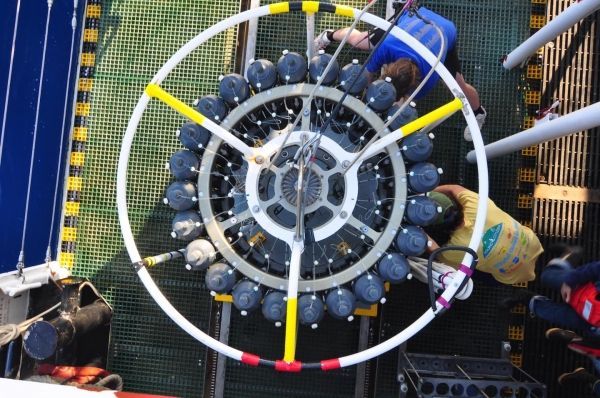The important nutrient phosphate may be less abundant in the global ocean than previously thought, according to a new paper in Science Advances. The researchers compiled data collected using highly sensitive techniques that measure phosphate to create a more accurate dataset to power global ocean models.
"This is a bit of a wake-up call that, as technology advances, we need to update the underlying data and processes that fuel ocean models to ensure they yield the best possible predictions," said Mike Lomas, senior research scientist at Bigelow Laboratory for Ocean Sciences and an author of the paper. "Models are our best chance to predict the many ways the oceans will respond as climate changes, but our predictions are only as good as the data underlying them."
Lomas and his coauthors found that data collected using high-sensitivity measurements reveal that phosphate in the surface ocean is less abundant than traditional measurements and models suggest. They also discovered previously-unknown patterns in phosphate levels in major ocean basins in both the Atlantic and Pacific. Ocean algae depend upon the mineral phosphate, which is essential to all life on Earth. Lower phosphate levels pose challenges for algae, which are already predicted to suffer as climate change makes ocean nutrients scarcer.
Read more at Bigelow Laboratory for Ocean Sciences
Image: Researchers retrieve samples in order to analyze how water chemistry in the Sargasso Sea may be changing. A new paper in Science Advances reveals that the important nutrient phosphate may be more abundant throughout the global ocean than previously thought. (Credit: Andrew Collins)


